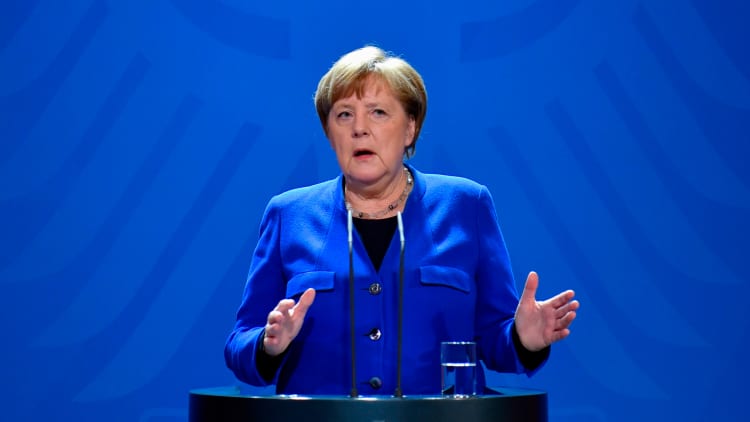
European leaders agreed Tuesday to close the European Union's (EU) external borders for 30 days in a new effort to slow the spread of the coronavirus pandemic.
The travel restrictions at the border are temporary and aim to reduce most non-essential travel from other countries into the European Union. The new rules will apply to 26 members of the EU, plus Iceland, Liechtenstein, Norway and Switzerland. Ireland has not yet decided whether to implement the restrictions.
"It's up to them now to implement it. They said they would immediately do that," Ursula von der Leyen, president of the European Commission told reporters Tuesday evening about when the external border checks would be applied.
Von der Leyen also suggested the U.K. was not applying restrictions to its external borders, but its citizens would still be allowed to travel into the EU. The U.K. has a unique relationship with the EU: it exited the bloc in January but remains subject to its rules until the end of the year.
Movement of people within the European free-passport area will still be allowed under the restrictions. This means that people in the so-called Schengen area will be able to move from one country to the other.
The travel restrictions do not apply to medical staff, medicines or goods.
"The flow of goods has to be swift, we need these goods for the functioning of the internal market," von der Leyen said at a press conference. "But we have also to make sure that the commuters can go back and forth where they live, or where they work," she added.
Some countries have imposed certain restrictions at borders with other EU countries and that could ultimately raise issues in the supply chain. "It is absolutely crucial that we unblock the situation," von der Leyen said.
The EU will also arrange for the repatriation of citizens of member countries.
"The Union and its member states will do whatever it takes," said European Council President Charles Michel, who chairs the discussions among the heads of state.
The EU is an economic and political union of most of the countries in Europe, including Spain, France, Germany, Italy, Ireland, the Benelux nations, Austria, Greece, Poland, Hungary, Romania, Bulgaria, the Czech Republic, Slovakia, Estonia, Latvia, Lithuania, and all Scandavian countries with the exception of Norway.
On Monday, Canada's prime minister, Justin Trudeau, said he was closing his nation's borders to foreigners, with the major exception of U.S. citizens.
This story has been updated to reflect that Ireland has not yet announced whether it will impose the travel restrictions.



